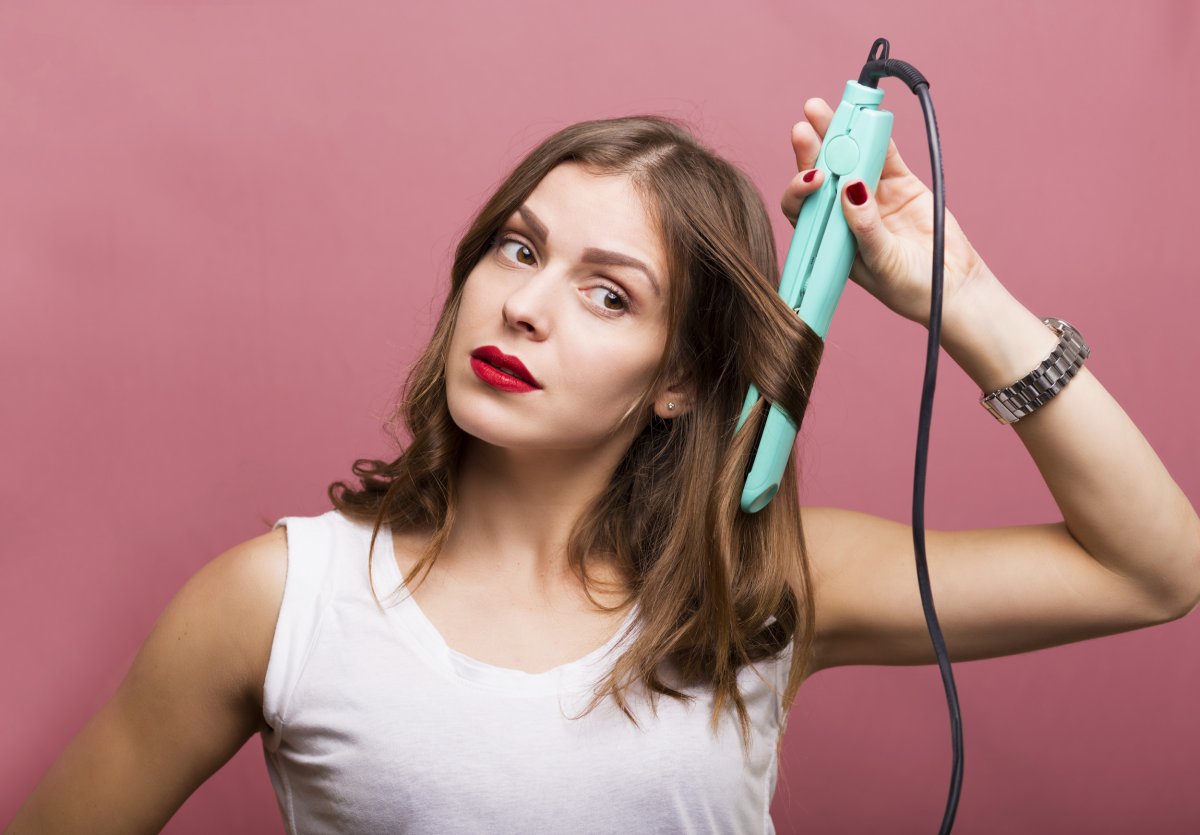We've been warned that heated styling tools are bad for our hair—but they might be bad for our health too.
Before using hot irons and curling wands, we're often told to treat our hair with smoothing sprays and styling creams. But the very same products that protect our hair may be causing more significant problems.
Many hair care products contain a class of molecules called cyclic volatile methyl siloxanes (cVMS), which are prized for their low reactivity, high thermal stability and smoothing texture. However, studies in mice have shown that they can also cause damage to the liver, lungs, respiratory tract and nervous system if inhaled.
When applied as a cold cream or wash out conditioner, our exposure to these compounds is fairly minimal. But when they are vaporized—for example, when they come under the heat of a hair straightener or curling wand—they may begin to cause trouble.

In a recent study, published in the American Chemical Society's journal, Environmental Science & Technology, researchers investigated how emissions of these chemicals change when used in combination with hair curlers and straighteners.
Their study involved participants using their usual creams sprays and oils with heated hair tools in a controlled home environment. Before, during and after styling, the team measured real-time emissions using a mass spectrometer. What they found was that heated hair styling caused a rapid spike in cVMS levels in the surrounding air. The highest emissions were seen for longer hair and higher temperature styling tools.
The team did find that, if an extractor fan was used, these air pollutants could be cleared within 20 minutes of the hair care routine. But this simply transports the chemicals into the outside air, with a potential impact on wildlife and outdoor air pollution.
Indeed, the concentration of these chemicals in city air in North America has been shown to spike early in the morning when people tend to use these products. The chemicals have already been detected in several aquatic environments and marine animals and have been shown to persist and build up in the bodies of various aquatic organisms.
Hair care products often contain other ingredients like monoterpenes and propylene glycol, which have also been associated with negative respiratory symptoms. Previous studies have also shown that many hair products, particularly dyes and chemical straighteners, often contain toxic chemicals that can cause damage to our DNA.
The researchers warned that long-term studies on the impacts of exposure to these chemicals are urgently needed to determine how concerned we should be.
Uncommon Knowledge
Newsweek is committed to challenging conventional wisdom and finding connections in the search for common ground.
Newsweek is committed to challenging conventional wisdom and finding connections in the search for common ground.
About the writer
Pandora Dewan is a Senior Science Reporter at Newsweek based in London, UK. Her focus is reporting on science, health ... Read more





